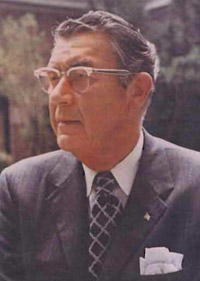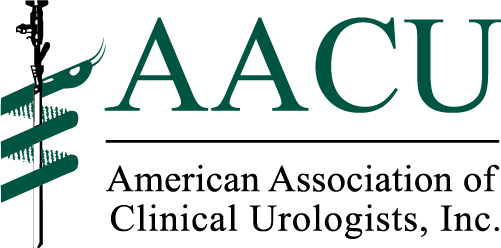History
AACU Founding President Charles A. Hoffman, MD

AACU Founding President Charles A. Hoffman, MD, in his inaugural address as President of the American Medical Association, June 21, 1972, San Francisco, Calif.
House of Delegates Proceedings, Annual Convention, Volume 1972, Issue 000, Pub. Date 1972, pp. 23-28
The birth of the American Association of Clinical Urologists in 1968 was preceded by a gestation period of several decades of growing concern by American urologists. To understand its relationship to the AUA and to appreciate its origin and subsequent development, one needs to know a bit about the socio-economic and political atmosphere of the period that preceded 1968. In developing this history the Historian, in addition to his personal records and memories, relied heavily on written recollections of the Past-Presidents of the AACU as well as the minutes of meetings preserved by the various previous Historians.
Charles Hoffman and Russell Carson invited the AUA Section Presidents and some others who had similar concerns to a breakfast gathering to be held during the AUA 1968 Miami Meeting. The purpose was to explore the founding of the American Association of Clinical Urologists.
The concept was a 501 c.6 organization whose mission would be to provide information about issues affecting socioeconomic and political spheres of our profession, and to influence directly the resolutions of those issues by providing one-on-one communication between urologist and legislator in order to assist in the development of suitable legislation in the best interests of private clinical patient care. The socio-economic and political purpose always was to complement the AUA, not to compete with it.
The answer was as simple as a basic logic syllogism: if A is related to B, and B is related to C, then A is also related to C.
There was a “Need” for urologists to be active politically, political action required a special 501.c.6 organization separate from the AUA.
History of the American Association of Clinical Urologists (1968 – 2001)
Harry C. Miller, Jr., MD; Emeritus Professor & Chair; Department of Urology; The George Washington University School of Medicine & Health Sciences; Washington, D.C. 20037
